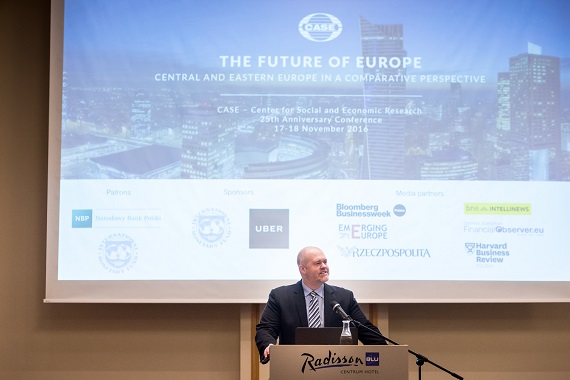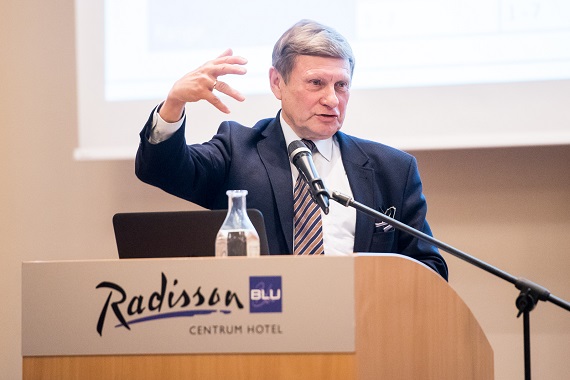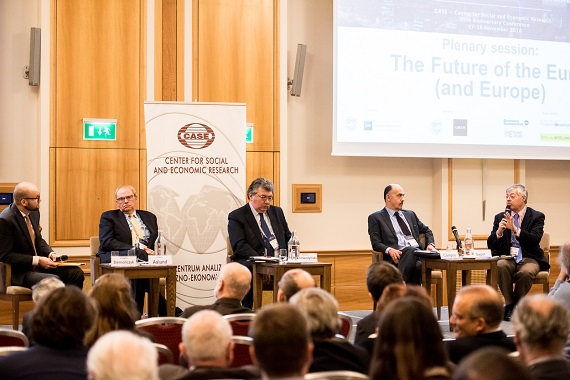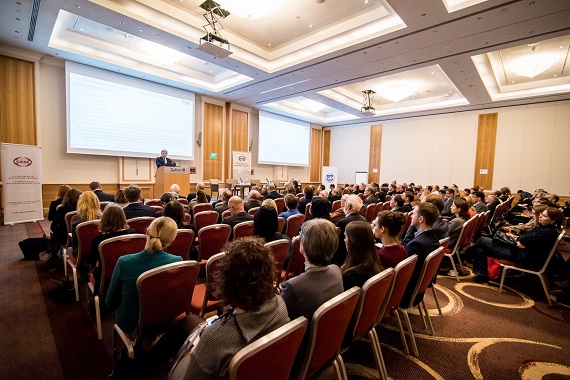The Future of the Euro (and Europe) – CASE 25th Anniversary Conference
The CASE 25th Anniversary Conference opened with a star-studded panel of guest speakers, who met to discuss the future of the euro (and Europe more generally). The welcoming speech, provided by CASE President, Dr. Christopher Hartwell, discussed how CASE has evolved from being the first think tank in the region to one that now spans across Europe. As Dr. Hartwell illustrated, CASE has been the flashlight that has helped navigate European policy makers through an uncertain world over the years, as they aim to uncover better and necessary policies.

The panel discussions then kicked off with a keynote address by Professor Leszek Balcerowicz, Professor of Economics at the Warsaw School of Economics, former Chairman of the National Bank of Poland, and Deputy Prime Minister in Tadeusz Mazowiecki's government. In his presentation, titled “Institutional systems and the quality of life,” Professor Balcerowicz highlighted the unquestionable importance of economic freedom, which encompasses free trade through to a limited regulatory framework, as an institutional necessity in fostering sustainable economic growth and prosperity.

The first guest speaker, Dr. Anders Aslund, Senior Fellow at the Atlantic Council, changed gears by turning the audience’s attention to the EU’s current low growth environment and raised the question: what should be done? In short, Dr. Aslund sees seven key issues that need to be addressed in order to improve the functioning of the EU market, namely: easing fiscal burdens; opening the trade of services; promoting digital trade; reducing labor market burdens; improving higher education and innovation; promoting venture financing and establishing an innovative ecosystem; and reforming pensions to make them transparent and actuarially sound. While some of these reforms may seem obvious, they remain as key hindrances to robust EU growth, and, as Dr. Aslund illustrated, the primary responsibility to make these changes lies with national governments.
This opened the door for a presentation from Professor Ryszard Kokoszczynski, Associate Professor at the University of Warsaw and a Member of the Management Board of the National Bank of Poland, who discussed how political feasibility can often limit economists’ solutions to European problems. Expanding on this point, Professor Kokoszczynski discussed how asymmetric information at the Member State level often creates difficulties in motivating collective action, which can be the case even when there are clear benefits at both the EU and national levels. In the absence of a proper incentive system, or a more compulsory framework, which can be much more difficult to implement, this type of moral hazard will, unfortunately, continue to exist.
Professor Nauro Campos, Professor of Economics and Finance at Brunel University London, approached the topic of the future of the euro (and Europe) from a different angle, discussing the evolution of “core” and “periphery” economies. The main hypothesis under consideration was the possibility that the European Monetary Union could exacerbate this divide, given that there are sometimes imbalances between core and periphery economies. However, by studying post-European Monetary Union data and generating an index of “core-ness content,” Campos illustrated that what was once considered “periphery” appears to be shrinking, that there is an increasing number of “core” countries, and that these positions are becoming increasingly entrenched.

Professor Andre Sapir, Senior Fellow at Bruegel, Professor of Economics at Université Libre de Bruxelles, and a former Economic Adviser to the President of the European Commission, shifted the conversation to more of a historical overview, reflecting on the state of the EU 25 years after its launch. In doing so, Professor Sapir underscored that the EU project is far from complete, characterized by heterogeneities across Member States and weak structural frameworks (even in some founding Member States). While the EU has benefited from the removal of borders and the greater integration of the goods market, the recent euro crisis has exposed the shortcomings of its blueprint. Now, more than ever, the EU requires structural reforms that are capable of homogenizing fundamentals across Member States before deepening their integration into the EU, which Professor Sapir claims as necessary for the future of the euro (and Europe) to be truly sustainable.

